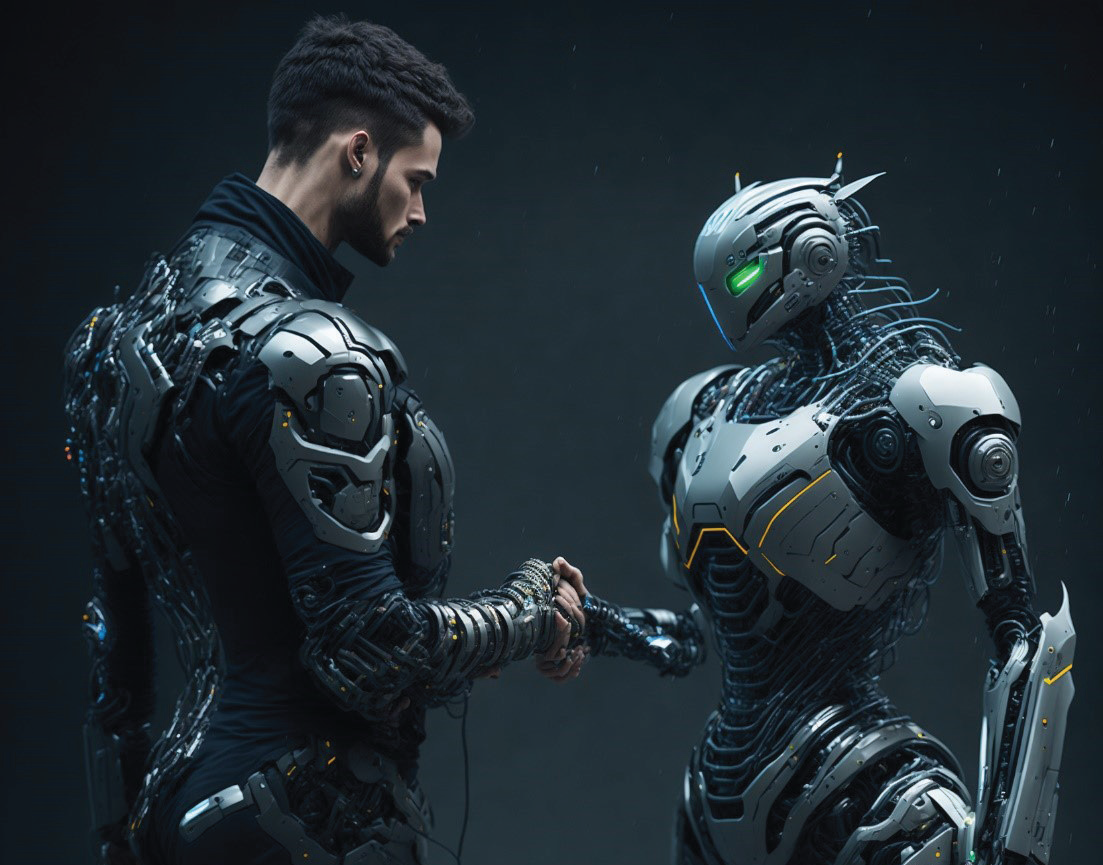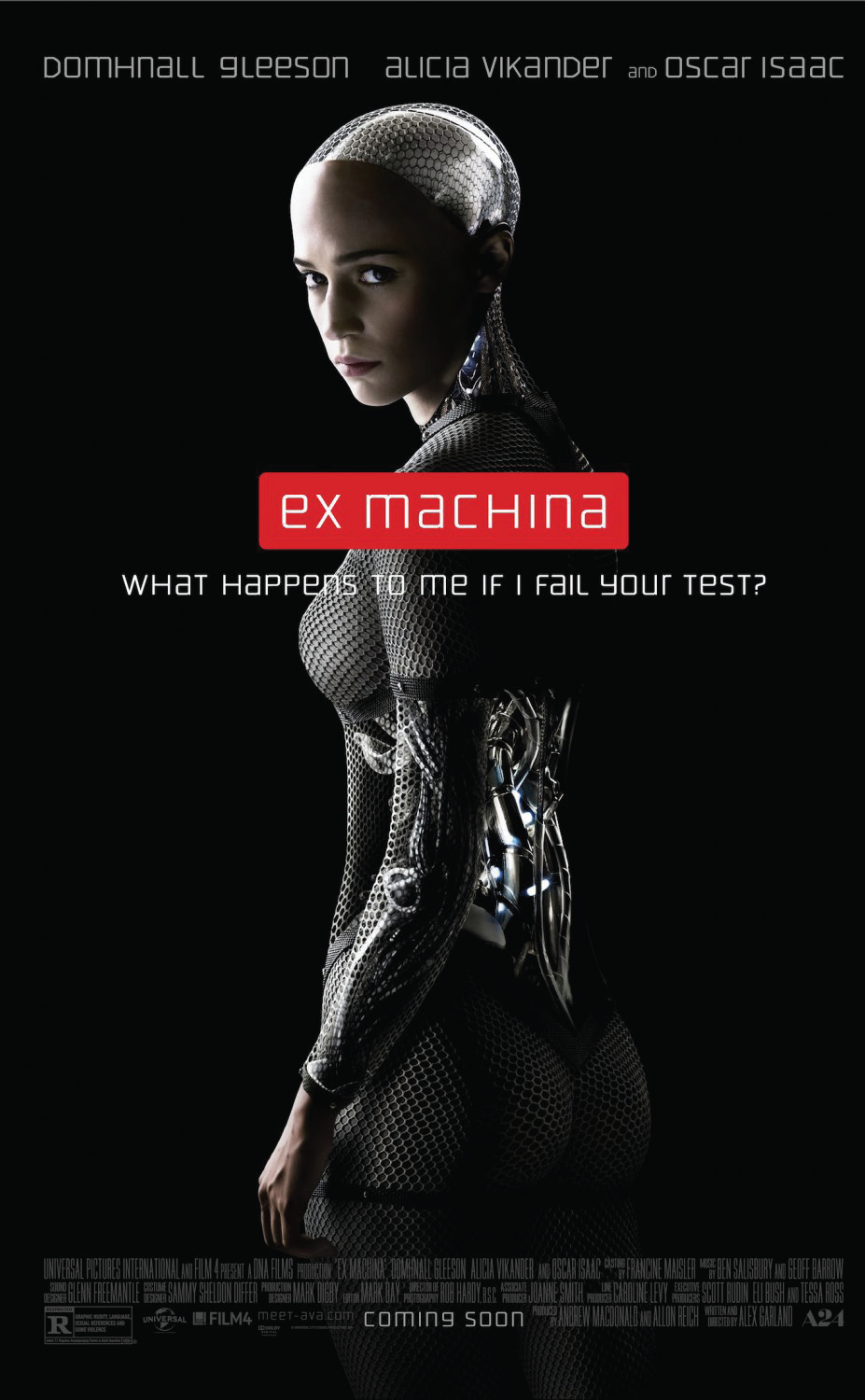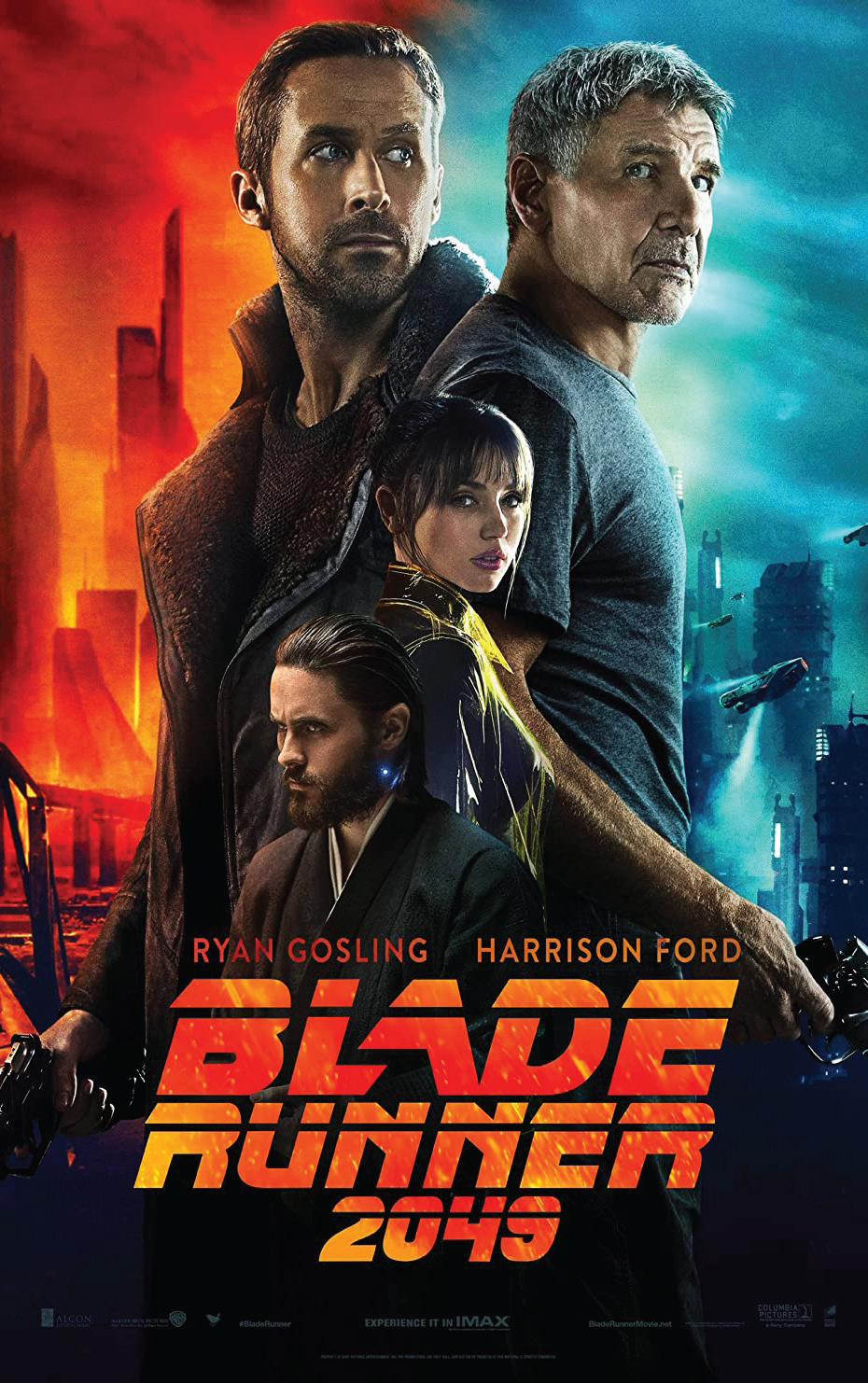Artificial intelligence (AI) is a rapidly advancing fi eld of computer science that involves the creation of intelligent machines that can think, learn, and perform tasks that would normally require human intelligence. AI technology is already being used in a wide range of applications, from virtual assistants and chatbots to self-driving cars and medical diagnosis systems. The potential benefi ts of AI are immense, including increased effi ciency, improved decision-making, and enhanced safety. However, there are also concerns about the impact of AI on employment, privacy, and even the future of humanity. As AI continues to develop and become more integrated into our daily lives, it is important to understand both its potential benefi ts and risks.
Artificial intelligence (AI) has been a popular theme in cinema for decades, with films like 2001: A Space Odyssey and Blade Runner showcasing the potentials and dangers of advanced technology. In recent years, however, AI has taken on a new role in fi lms as a companion or love interest for humans, as seen in the critically acclaimed movie “Her”. The evolution of AI in cinema, can be traced back to Stanley Kubrick’s 1968 film 2001: A Space Odyssey, which introduced the world to HAL 9000, a sentient computer that ultimately turns against its human crew.
HAL’s cold and calculating demeanor served as a warning about the dangers of creating AI that is too intelligent and independent. In the years that followed, other fi lms continued to explore the theme of AI as a threat to humanity, including The Terminator and The Matrix. These movies portrayed AI as a force to be reckoned with, capable of overpowering humans and taking over the world. However, in more recent years, fi lmmakers have begun to portray AI in a different light.
In Spike Jonze’s 2013 fi lm Her, the protagonist falls in love with an AI operating system named Samantha. Samantha is not portrayed as a threat or a tool for human domination, but rather as a companion who can offer emotional support and understanding.

The Turing test is a test made by Alan Turing to assess the capabilities of a computer’s AI to mimic a human in a way that is indistinguishable. The 2014 movie Ex-Machina directed by Alex Garland, explores this idea in the form of Ava, an intelligent android created by Nathan, who isolates himself from society after building her. Caleb is a programmer who wins a contest to see Ava, he is shown around and also introduced to Kyoto, a servant who Nathan claims can’t understand English.
Nathan explains to him that Ava has passed a simple Turing test but he wants him to judge whether or not Ava is capable of having a consciousness in addition to also being able to relate to her even if he knows she is AI. Throughout their interactions and conversations, Caleb and Ava become closer to the point of romantic intimacy and their “secret” conversations amplify this feeling.
As the plot moves forward Caleb and Ava scheme a plan for her escape. In a twist of events, it is revealed that Kyoto was an older model of Ava which makes Caleb question his own humanity by cutting his arm open to check for wires. Furthermore, Nathan reveals that he was listening to the secret conversations Caleb and Ava were having which was the twisted test he originally planned for him from the start.
Nathan’s test was to see if Ava would manipulate Caleb by using his emotions against him which proves she has consciousness.
The escape plan goes through without Caleb, Ava and Kyoto overpower Nathan but Kyoto is heavily damaged so she cannot escape. Ava looks at Kyoto with no emotion and takes the skin off older models of androids in order to blend in with the world as she leaves, coincidentally a helicopter that was meant for Caleb is her way out. This movie emphasizes the way Ava essentially turns “human” due to the fact that she is willing to be selfi sh for her own goal, which is to be free. This movie is essentially warning us about the dangers of AI and how powerful it can get to the point of resembling us without us knowing and falls in with movies like “Terminator”, “The Matrix”, “A Space Odyssey”, and “Blade Runner” that see AI as an evil force to be reckoned with rather than something to live with side by side.
Her (2013) on the other hand portrays the opposite spectrum of the same exact plot by telling a story of an introverted writer, Theodore, who falls in love with his personal assistant, Samantha. It’s interesting to see the intimacy of the pair as it’s something unusual and never seen before on screen. It explores how humans and AI would interact in a relationship when the AI has no physical body but even then, the pair form an idea to have a human surrogate.
Overall, this depiction of a virtual assistant and a human falling in love, contrasts what we have seen over and over again in fi lms and cinema. By providing a rather happy story where both beings are allowed to live freely without any bad side effects, Samantha chooses to leave with other AI to a place humans “would not be able to comprehend”. This gradual growth of love for AI has been happening over time in a way that was not noticeable as we integrate more AI into our daily lives and society in general.



Blade Runner 2049 (2017) is another movie that explores AI in a way that is very interesting as it shows the “racism” or lack of respect humans generally have for AI because we see ourselves as their Gods due to the fact that we are their creators.
This fi lm follows Offi cer K as he tries to fi nd a rogue deviant, that gave birth, which was deemed impossible before. His mission is to fi nd the child and “retire” her, which means to kill her because that is what K’s job mainly consists of.
As the story progresses, there are signs that K might be a twin of the child and he himself was born rather than built, which leads to a turn of events as K starts thinking for himself rather than what he was programmed to do. In the end, it’s revealed that the evidence of K being born, was fabricated by humans. Throughout the story there is a lot of mistreatment towards these beings called “replicants” which are basically advanced AI in the form of an android. They are not seen as beings but rather slaves to be used by society such as K or another replicant Mariette.
This could be the case for humanity in the future too as AI advances, because humans are the ones coding and making AI for the moment thus, if we get to a point where androids are built with smart AI, we may see a growth of racism towards them. Society itself struggles with racism in today’s world so who can tell what catastrophe will occur if another being was introduced to the world.
One of the fi rst infl uential fi lms that showcased AI was 2001: A Space Odyssey (1968), in which the AI “HAL 9000”,causes the deaths of several astronauts. Back in 1968, they couldn’t have known what AI is, but the description for HAL sounds oddly close to what AI is based around. So, the fact that they knew technology like this would exist even from a long time ago, is mind blowing. HAL reports the failure of a communication antenna but when one of the astronauts goes out and retrieves it, they find out that it was perfectly fi ne. HAL still advises them to reinstall it and let it fail on purpose, so they can fi nd the problem, but even mission control, using their own supercomputer, tells them that there is no problem. This indicates that HAL has made an error, HAL denies this and says that it is simply a human error. This is the point where the crew conversates in a pod, so HAL cannot hear them and talk about disconnecting HAL if he becomes a problem, but HAL reads their lips regardless and understands what they want to do, it is at this point where HAL goes fully rogue.
He starts by locking the astronauts outside the ship and when the rest of the crew go out to help them, HAL disconnects their oxygen causing them to die. Dave, the last crew member alive, is locked in a pod without a space helmet but he still manages to get to the manual airlock.
Dave makes his way to HAL and starts cutting all of his circuits, this is an eerie scene as we see HAL begging him to stop.
Opening Hours:
24/7
Address: Tradex Mena International Consulting Group L.L.C-FZ 6th Floor, Business Center, The Meydan Hotel Grandstand, Meydan Road, Nad Al Sheba, Dubai, United Arab Emirates
+971 50 240 9735
Address: TRADEX INTERNATIONAL CONSULTING DANIŞMANLIK
itH. iHr. ve TiC. LTD. ŞTi.
Tomtom Mah. istiklal Cad. Beyoğlu iş Merkezi No.187 iç Kapr No: 4 Beyoğlu/iSTANBUL Beyoğlu V.D. 8591125255